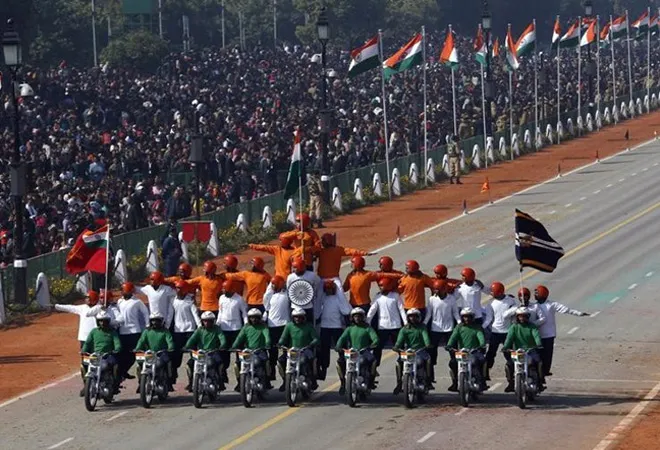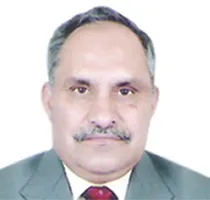The Prime Minister must be complimented for his ‘Swachh Bharat' programme. But surely, there can be nothing more thoughtless than an attempt to use the military as one vast force of safai karamcharis. To take advantage of a disciplined force is foolish and inherently dangerous.
We are unfortunate to belong to a nation where most politicians, of all hues, lack personal experience of having served in the military, and are, therefore, challenged when it comes to military matters. It is not just their ignorance of how our Armed Forces are organised or function, but also their utter incomprehension of its cultural ethos and traditions that are on constant display. This, more often than not, ensures that their treatment and employment of the military verges on the ludicrous. This is not a new phenomenon but has been our fate for 100 years. It is no wonder that a few hundred British, mainly clerks and traders, organised and trained up a relatively small bunch of locals to take on the might of the Mughal empire and other assorted rajas and presided over our collective destinies for 200 years.
Thus, it comes as no surprise that a novice Defence Minister, whose political career has been shaped by Prime Minister Narendra Modi, and hinges on his goodwill, jumps to do his bidding as he attempts to get another of his fanciful ideas implemented. Don’t get me wrong; the ‘Swachh Bharat’ project has been a much-needed initiative, for which Modi must be complimented. But surely, there can be nothing more thoughtless than an attempt to use the military as one vast force of safai karamcharis. That truly verges on the demented, to say the least. It’s not as if the Army does not clean its own areas using troops. Not only does it do so but ensures that its own areas are kingly clean when compared to surrounding areas administered by various municipal bodies.
The use of the military for developmental activities is one thing, and that has been tried earlier by some other countries as well, including China, though not followed through on a regular basis, given its adverse impact on their operational proficiency and capabilities. But to take advantage of a disciplined force, that is trained to follow orders at whatever cost for such a mundane task, which is the responsibility of a host of Government agencies, employed and paid for this very purpose, just because they do a shoddy job and cannot be held accountable, is foolish and inherently dangerous. The military is motivated to make sacrifices primarily as a matter of honour, for defending one’s own or the units’ izzat, and not cleaning somebody else’s muck especially, of uncaring and uncouth citizens.
The local Government, which gains from the inflow of tourists, should take the required steps to keep those areas clean, if it wants more tourists to add to its kitty. There is also ambiguity as to its constitutionality of such orders as it seems extremely unlikely that the Prime Minister can order other Government servants, say school teachers or bureaucrats, to carry out such tasks without them refusing or resorting to protests.
Despite attempts by the military establishment to show this issue in positive light, there is little doubt that it was utterly foolish and short-sighted of the Army hierarchy to have so readily acquiesced to such an incongruous order and proceeded to implement it as if they were conducting another ‘surgical strike’ into Pakistan. ‘Cutting grass’, as such tasks are referred to in the Army, is an extremely emotive issue and the leadership seems to have acted without thinking things through.
Just suppose a soldier was to refuse to carry out such an order. How would the hierarchy respond? Obviously, to protect its own credibility, it would be forced to act against the individual, which would obviously only lead to more heartburn and anguish within the rank and file. At the end of it, either there would be further cases of indiscipline, or what is more likely, just mere tokenism.
After all, how does the leadership measure success in such matters? Whichever way it goes, the hierarchy has done itself no favours and will find its credibility and authority questioned whatever the tasks may be.
When dealing with such ignoramuses, it was the responsibility and duty of the military hierarchy to explain to the political leadership the ramifications of their ill-conceived directions and, if necessary, even refuse to let the military be used in such a manner. If, on the other hand, it was convinced that the idea had merit; and it would not adversely impact both operational and training activities and morale of the units assigned, then it was incumbent on them to have led the initiative from the front. The chief and other top brass should have been there with broom in hand to show solidarity to their troops. That is the essence of what leadership demands. However, as I suspect, it is unlikely that they would ever lead such an initiative from the front as they would find it embarrassing.
Let me add that, there is nothing demeaning or embarrassing in picking up a broom to keep our environment spick and . That is our bounden duty as citizens and there would be no dearth of volunteers for such a task, even among the military, if that was asked for. To order them to clean others latrines just because one can reek of arrogance is an absolute no-no. One can only wonder as to why two former soldiers in the Cabinet did not think to advise the Prime Minister of how his directions would play out. Sadly, they seem to have forgotten soldiering and become adept politicians, no doubt good for their careers but is hardly likely to win them friends within the services community.
This commentary originally appeared in The Pioneer.
The views expressed above belong to the author(s). ORF research and analyses now available on Telegram! Click here to access our curated content — blogs, longforms and interviews.




 PREV
PREV


